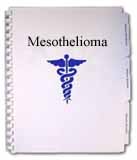|
Mesothelioma and Lung Cancer News - Return to Menu
Asbestos claims could top $150m
By REBECCA WALSH
16.02.05 - Asbestos-related claims could cost the Accident Compensation Corporation at least $150 million in lump-sum payments over the next 10 years.
Figures released to the Herald under the Official Information Act show ACC could face costs ranging between $75 million and $415 million depending on the number of claims.
Medical experts say the final figure is likely to be higher than the "middle costing" of $150 million as the number of people with asbestos-related disease has been underestimated.
In August last year District Court judge David Ongley ordered ACC to pay compensation of nearly $100,000 to the estate of Auckland man Ross Lehmann.
The 79-year-old retired fitter and welder died in November 2003, about a year after he was diagnosed with asbestos-related lung cancer.
He had been exposed to asbestos 40 years earlier.
The Wellington District Court decision was the first lump-sum award for asbestos victims diagnosed after April 1, 2002.
ACC, which is appealing the decision in the High Court, wanted to pay lump sums only to people suffering injury or exposure after that date.
The ACC papers said the $150 million estimate assumed three lung cancer claims for every case of mesothelioma (a cancer of the lung lining). If the figure was as high as 10 cases of other cancer for each case of mesothelioma, as some medical literature suggested, then the cost over the next 10 years would be closer to $415 million.
ACC spokesman Gerard McGreevy said $150 million was a "large sum of money in anyone's terms" and the costs would ultimately be passed on to employers and industry.
In 2003 99 new claims, including 48 for mesothelioma, were accepted by ACC. That number was expected to increase, particularly among people with lung cancer who were exposed to asbestos at work and were heavy smokers.
"We expect about 270 cases to be reported next year if lump sums were available," the papers said.
The maximum sum payable was $104,109.06.
Senior researcher Dr Pam Smartt said except for mesothelioma, asbestos-related lung disease was "incredibly difficult" to prove.
"What people need to fight for is a more lenient and positive approach to who is entitled to claim. They [ACC] need to lower the threshold so more people are given the benefit of the doubt," she said.
"These are diseases that have latencies of 10, 20, 30 or 40 years and putting time limits on it like this is just silly."
Dr Smartt co-authored research published in the New Zealand Medical Journal last year which found hundreds more New Zealanders died from asbestos-related disease than was recorded on death certificates.
She said the ACC figure of $150 million was likely to be low and a more realistic figure was "double that".
But Hazel Armstrong, the lawyer for Mr Lehmann's widow, Dawn, believed the $150 million figure was too high and might make the Government more reluctant to assist other claimants. She wanted more accurate figures from ACC on its liability.
Asbestos liability
In 2003 a total of 99 new claims, including 48 claims for mesothelioma - cancer of the lung lining - were accepted by ACC.
The ACC expects 270 cases next year if lump sums are available.
The maximum lump sum payable is $104,109.06
Bayer and partner launch Phase 3 trial for lung cancer treatment
02/17/2006 - Bayer Pharmaceuticals Corp. has begun a randomized, double- blind, placebo-controlled Phase 3 clinical trial with Calif.-based Onyx Pharmaceuticals Inc. studying a compound as a potential treatment of lung cancer.
The study has the Nexavar (sorafenib) tablets administered in combination with the chemotherapeutic agents carboplatin and paclitaxel in patients with non-small cell lung cancer.
The multicenter study will compare Nexavar when co-administered with the two chemotherapeutic agents versus carboplatin and paclitaxel alone. The study, which is expected to enroll approximately 900 patients, will assess overall survival as the primary endpoint. Secondary endpoints include progression-free survival, tumor response and safety.
The U.S. Food and Drug Administration (FDA) has completed a Special Protocol Assessment for the Phase 3 trial, according to officials at New Haven-based Bayer. A SPA is a written agreement on the design and size of a clinical trial intended to form the basis for a new drug application.
In 2005, Nexavar received FDA approval for the treatment of patients with advanced kidney cancer. It is currently in Phase 3 clinical trials for the treatment of advanced hepatocellular carcinoma (HCC), or liver cancer, and metastatic melanoma, or skin cancer
At midmorning, Bayer stock was trading for $41.56, down 26 cents from its close yesterday.
|

































